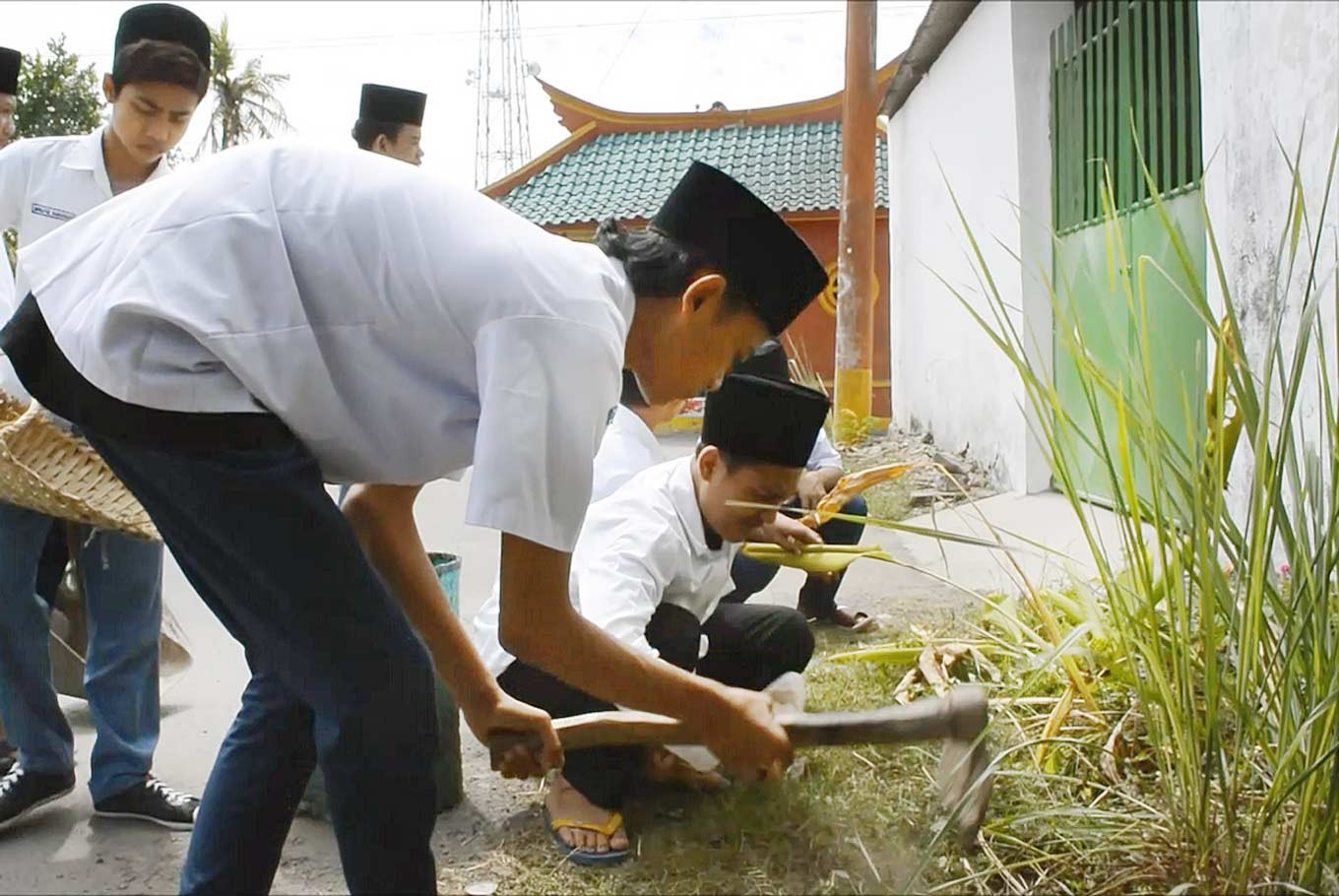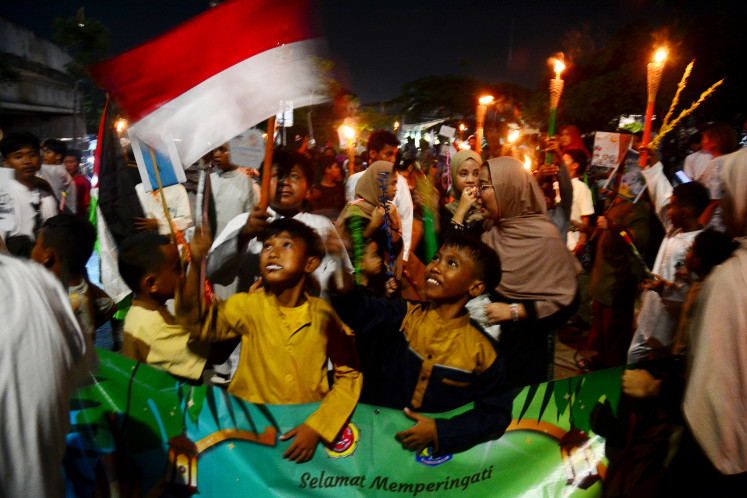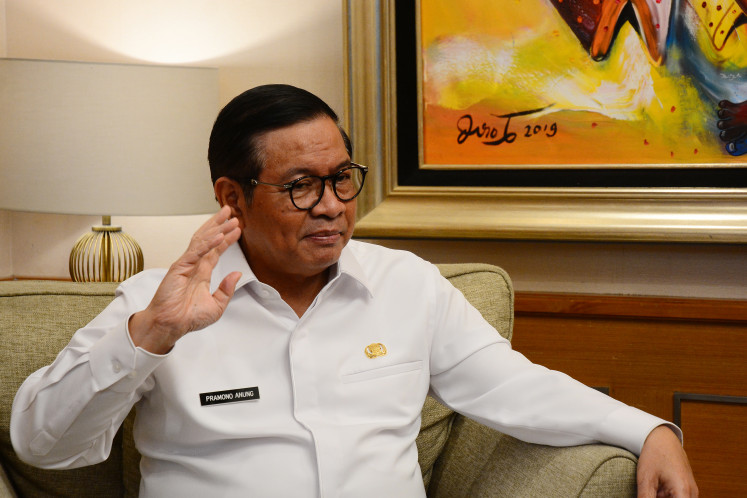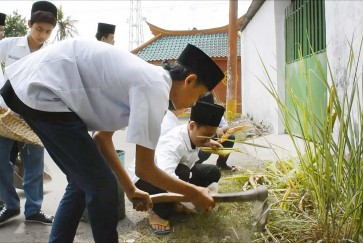Popular Reads
Top Results
Can't find what you're looking for?
View all search resultsPopular Reads
Top Results
Can't find what you're looking for?
View all search resultsHow ‘pesantren’ foster unconventional leaders
Santri are encouraged to critically evaluate and advocate against economic models that contribute to ecological damage, particularly those based on extractive and capitalistic approaches to nature.
Change text size
Gift Premium Articles
to Anyone
I
n the heart of Yogyakarta, a groundbreaking En-Roads Climate Simulation workshop, developed by the Massachusetts Institute of Technology (MIT), is revolutionizing educational approaches within a pesantren (Islamic boarding school). This collaborative and innovative setting ignites curiosity among the santri (students), transforming them into climate justice advocates and tech innovators.
Pesantren’s response to modern challenges integrates Islamic environmental stewardship with contemporary issues. Ancient scriptures guide the students, emphasizing stewardship and responsibility, thus preparing them as leaders capable of addressing climate change and ethical dilemmas in technology. This education goes beyond theoretical knowledge, embedding akhlak (moral character) values in its curriculum.
The vibrant and dynamic discussions among the santri, marked by a willingness to challenge norms and exchange opinions, are noteworthy. This culture is distinct from typical Indonesian student environments.
My interviews with participants and caretakers revealed that pesantren, often misconceived as conservative, are actually at the forefront of marrying Islamic teachings with modern educational demands. They are nurturing leaders who are academically sound and equipped with resilience and innovative thinking to tackle pressing global issues.
"Embracing both old and new helps us face new challenges with confidence," notes an educator from a local pesantren. This sentiment reflects the progressive nature of pesantren education, highlighting its pivotal role in shaping a new batch of leaders equipped for modern-world challenges.
Pesantren stand out as vibrant centers of learning where tradition and modernity coalesce. Their curriculum, merging religious studies with global issues, dispels the myth that religious education is incompatible with progressive thought. The students, deeply rooted in their cultural and religious identities, are actively engaged in addressing global challenges.
Delving deeper, the alignment of pesantren education with modern psychological frameworks, like the Big Five personality traits, becomes apparent. Traits such as openness, conscientiousness, extraversion, agreeableness and emotional stability are actively cultivated. Pesantren education, therefore, not only preserves tradition but also integrates contemporary psychological insights to prepare students for the complexities of today's world.



















